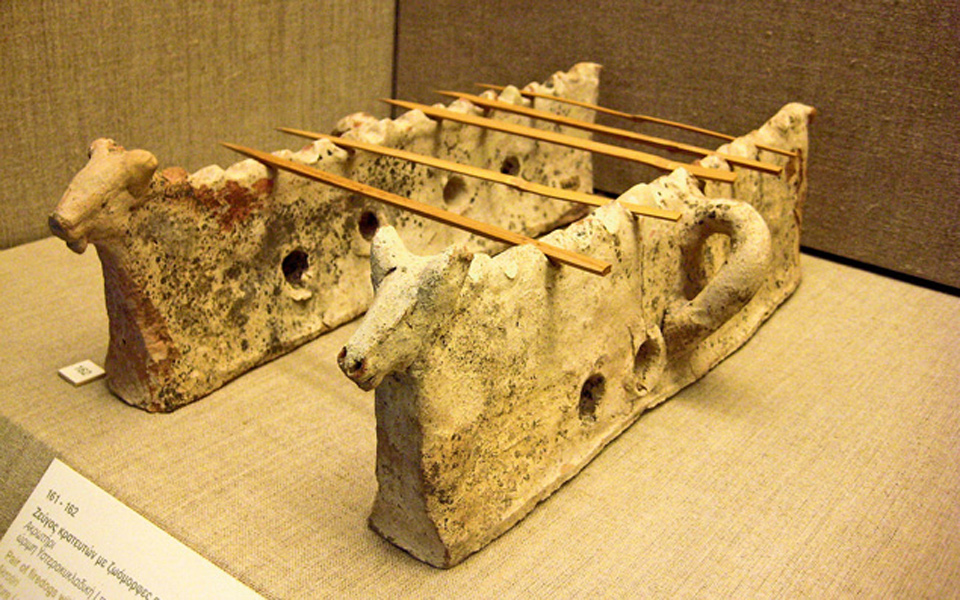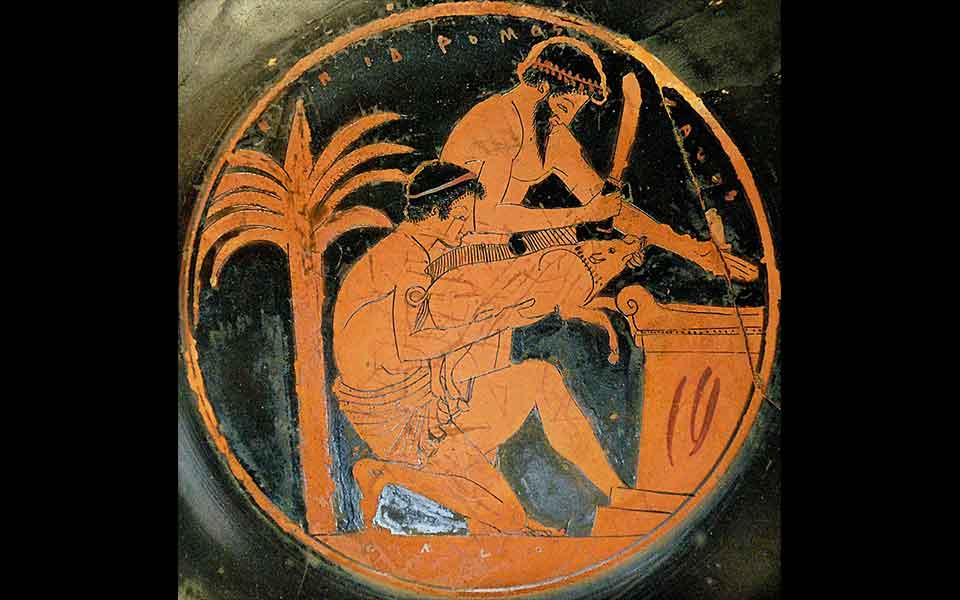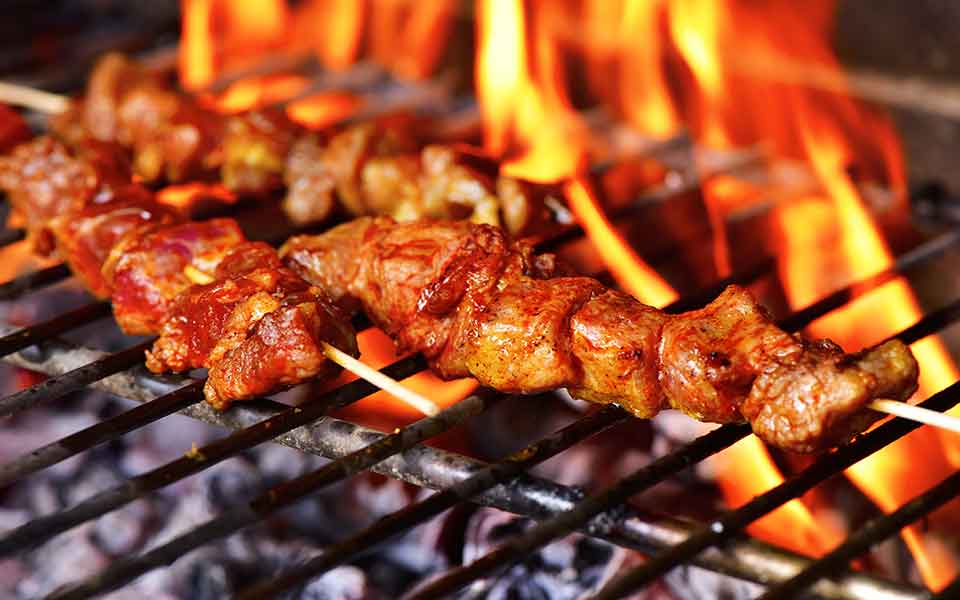As the smell of grilled meat fills the night air on “Tsiknopempti” (“charred” or “smoky Thursday”), we think back to the origins of the age-old souvlaki, Greece’s favorite fast food.
Overseas visitors to Greece may be forgiven for thinking that this delectable meaty snack is a culinary leftover of the Ottoman period, a derivative of the Turkish/Middle Eastern shish kebab. But archaeologists have conclusively shown that the humble souvlaki, or an ancestral version of it at least, actually dates back to the Greek Bronze Age, where cooking food on spits or skewers was commonly practised.
On the Cycladic island of Santorini, buried under multiple layers of volcanic ash, archaeologists have unearthed what appears to be a small rack for grilling meat, dated to the 17th century BC. This curious looking object, which includes a pair of ceramic firedogs (support brackets) with bulls-head finials and slots for skewers, suggests that the ancient Therans were equipped to grill chunks of meat, souvlaki-style, from the comfort of their own home.

© Public domain
Moving to the Greek mainland, at the Late Bronze Age sites of Gla (Viotia), Mycenae and Pylos, so-called “souvlaki trays” have also been discovered, this time with rectangular ceramic pans positioned under the skewers, perhaps to accommodate hot coals. As such, the whole contraption would have been easily portable – an ancestor of the modern barbecue grill!
Writing/composing sometime in the mid to late-8th century BC, the epic poet Homer describes the roasting of meat on spits (“obelos”) in the “Iliad,” which contains multiple scenes of communal feasting among the Greek warriors. In Book 1 (line 459 ff), the poet even goes into some detail as to what cuts of meat were used and how they were prepared, following a blood sacrifice to the god Apollo: “…thighs covered with a double layer of fat” were burned “on stakes of wood, and made libation over them of gleaming wine; … young men held in their hands the five-pronged forks … they cut up the rest and spitted it, and roasted it carefully …”
Spit-roasted meat is also mentioned in the works of Classical authors, including Xenophon, Aristotle, and the comedic playwright Aristophanes, who describes skewers to roast thrushes in his play “Archanians.” In the Byzantine period, the author of the “Prodromic Poems” even refers to street vendors in Constantinople selling spit-roasted meat wrapped in bread.

Souvlaki today
Souvlaki (or gyros) – small chunks or shavings of meat expertly grilled on a skewer – is widely regarded as Greece’s quintessential street food, a must try for meat-lovers looking for something quick and tasty on the fly. Rotisserie joints are ubiquitous up and down the country, providing popular meeting places for people to grab a bite at any time of the day.
Oftentimes, souvlaki is simply eaten straight off the wooden skewer, piping hot, with a squeeze of lemon and a sprinkle of salt. This plain skewer is commonly referred to in Athens as a “kalamaki,” meaning “straw” or “small reed” (ask for a “kalamaki” in the northern city of Thessaloniki, and they’ll give you an actual straw!). The more popular image of a souvlaki abroad, however, is the “pita souvlaki,” gyros or skewered meat wrapped in a pita bread with a dollop of tzatziki, onions, tomatoes, and often (though not traditionally) fried potatoes. Pork is usually the meat of choice in Greece, but lamb, beef and chicken are also widely available.
For all the vegans, vegetarians and pescatarians amongst you, fret not! There are plenty of meat-free options out there, especially in the run up to Easter.












